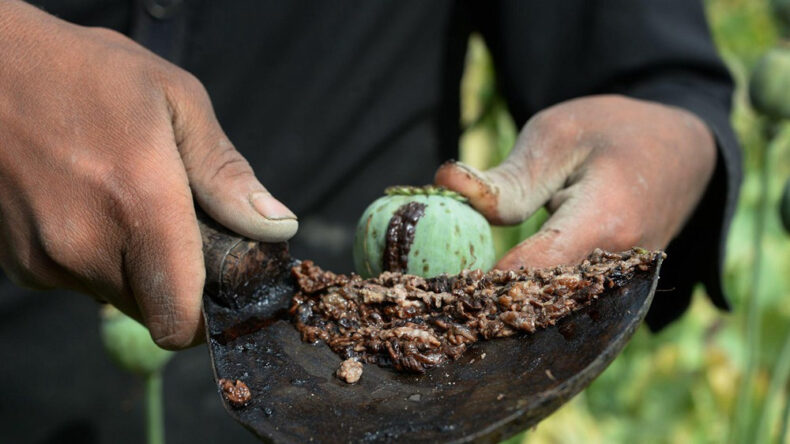Yes, there are parrots. And these were no ordinary parrots. They were drugged-up parrots, high on opium! If you’re wondering how a group of parrots got their hands on opium, here’s the twist. Farmers who worried about the parrot threat produced opium on their land. And the parrots continued to ruin the crop, not because they had a taste for destruction, but because they couldn’t get enough of the opium.
The parrots were junkies, which was a huge concern back then.
But wait for a second… Isn’t opium a prohibited substance?
Technically speaking, it is. poppy seeds and its many forms are prohibited under the Narcotic Drugs and Psychotropic Substances Act of 1985. However, it is legal in areas of Madhya Pradesh, Rajasthan, and Uttar Pradesh. And, despite the fact that it is heavily controlled, given the addictive nature of the crop and everything, the Indian government does issue permits to produce the crop. In reality, India is one of the few nations that still cultivates opiate and the only one that produces opium gum legally. In all, around 1 lakh farmers continue to cultivate opium in the country.
But how did the government wind up producing this drug, you may wonder?
This regulatory quirk, however, extends back several centuries. The Mughal empire regulated the opium trade in the 16th century by rigidly regulating opium cultivation and selling. The crop was subject to a governmental monopoly. However, when their influence dwindled, private dealers entered the fray. And by the time the British arrived in India, they had taken control and were selling opium all over the world, particularly to China. This sparked the Opium Wars, a series of warfare between China’s Qing dynasty and British soldiers. The British won both wars, bolstering the Opium trade by continuing to cultivate the commodity in India and sending it to locations like China.
This explains why India had a thriving opium trade when we won independence in 1947. Instead of entirely abandoning the crop, the Indian government simply took it and tightly regulated output.
And, no, they weren’t cultivating the crop to take advantage of its psychoactive properties. The emphasis was on medications. The opium poppy plant, you know, generates alkaloids, which are chemical compounds that help plants resist herbivores. However, alkaloids have another function. It’s a key component in the production of morphine, thebaine, and codeine. While morphine is one of the world’s most well-known pain medications, used to alleviate excruciating pain from trauma and cancer, codeine is found in cough syrups.
Opium is quite beneficial. So, these licensed farmers cultivate, harvest, and sell their produce to the government at controlled prices. The government processes it at the Government Opium and Alkaloid Factories. And finally, the extracts are handed over to the pharma companies who then use the product in painkillers and syrups.
So, all these years, the Indian government was largely responsible for making this happen. Pharma companies depended on the state for opium alkaloids.
However, the Indian government now wishes to take a back seat. It wishes to allow the private sector to participate as well. Bajaj Healthcare has received the first private licence for processing opium (into alkaloids).
Yes.
But what caused the unexpected change of heart?
Then there’s the matter of pricing. Farmers have been voicing their dissatisfaction with their remuneration. Farmers claim they get paid a pittance for their produce when the going rate on the black market is at least 30-60 times greater. They demand greater equality.
Finally, there's the issue of efficiency, which is particularly relevant to harvesting techniques. In India, alkaloids are often extracted by a process known as lancing. It's a labor-intensive business. To extract the gum, very competent farmers make incisions in the pods.
Even the Central Bureau of Narcotics (CBN) calls it a “precise art”. But it results in leakage. That is, farmers divert some of the output to smugglers in a bid to make more dough.
Other opium-producing nations, such as Australia, have discovered a significantly superior approach, known as the concentrated poppy straw (CPS) extraction method. Instead of manually slicing the pods, the entire plant is transferred to the extraction device. As a result, the alkaloid production increases.












